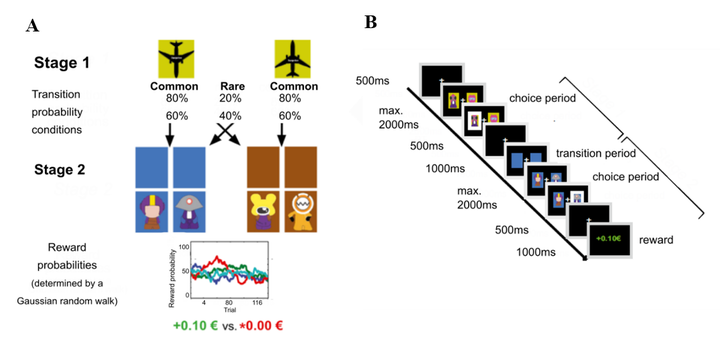
Abstract
Younger adults engage in a combination of model-based and model-free decision-making. In contrast, when under high cognitive demand, older adults to resort to simpler, model-free decision strategies. This age-related shift in decision behavior has been attributed to deficit in the representation of state spaces necessary for more complex model-based decision-making. We used a two-stage Markov task, computational modeling, and single-trial EEG analyses to establish neural markers of age-related changes in goal-directed decision-making under different representational demands. Electrophysiological results suggest that the shift towards simpler decision strategies under high cognitive demand is due to a) impairments in the representation of the transition structure between states in the task b) a diminished signaling of the reward value associated with decision options. Based on these findings we suggest that older adults may require a more predictable decision environment and a more differentiated incentivization structure to engage in model-based decisions.